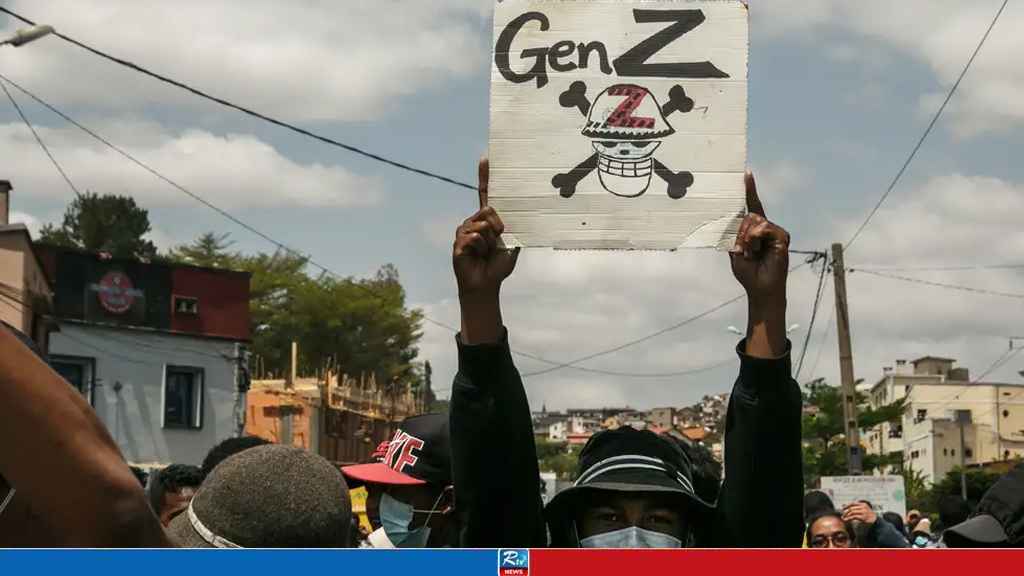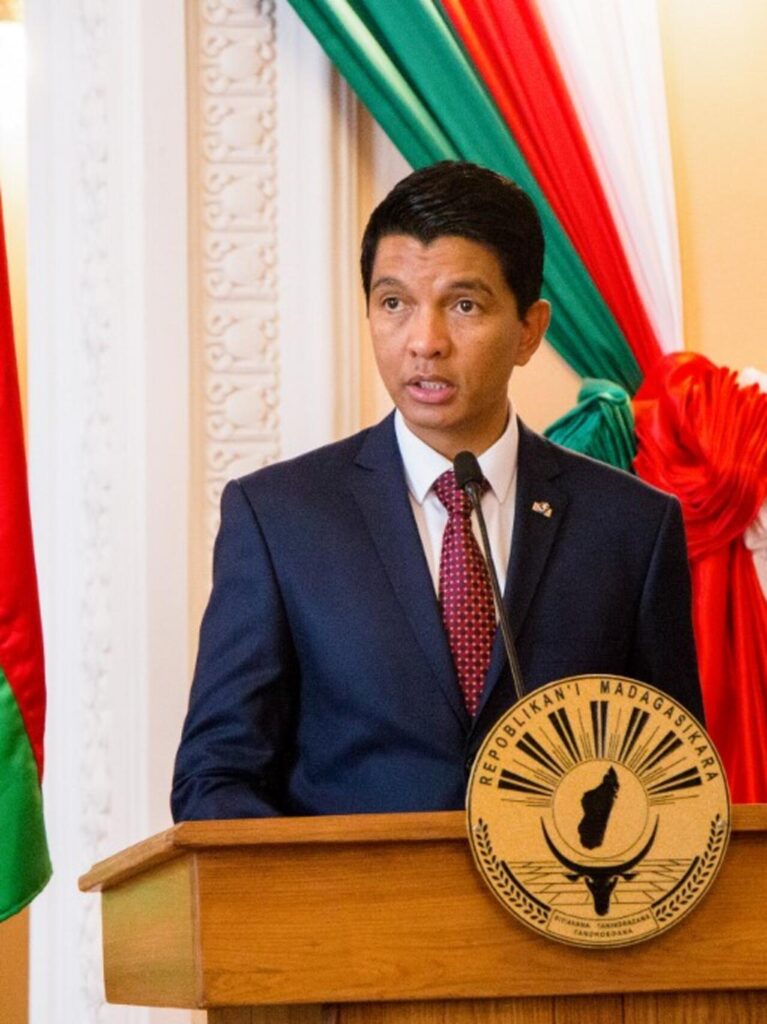
Tensions in Madagascar’s capital, Antananarivo, deepened on Saturday as both supporters and opponents of President Andry Rajoelina staged rival rallies following a week of deadly youth-led demonstrations that the embattled leader has condemned as an “attempted coup”.
The protests — spearheaded by an online youth collective calling itself Gen Z Mada — were inspired by similar uprisings in Bangladesh, Kenya, Nepal, and Indonesia. What began as frustration over daily power cuts and water shortages has morphed into a wider movement against poor governance and corruption. Protesters are now demanding Rajoelina’s resignation.
According to the United Nations estimates, at least 22 people have died and hundreds more have been injured since the unrest began — a death toll the government has dismissed as “misinformation and rumours.”
On Saturday, anti-government demonstrators tried to gather in the city centre but were blocked by a heavy security presence. Police erected roadblocks across Antananarivo, including in the Ambondrona neighbourhood.
“This is the fastest route to Ambohijatovo,” said Ilan Randrianarison, an 18-year-old student wearing the now-iconic straw hat that has become a symbol of defiance. “After the massacres, people are angrier than ever. We’re here for our comrades.”
Even as that was happening, armoured vehicles and military police guarded Independence Avenue, where some officers passed the time scrolling through their phones, playing cards, or sleeping under the shadow of City Hall.
Across town, a pro-government rally convened at the Coliseum, a Roman-style amphitheatre built by Rajoelina during his first stint in power after a military-backed takeover in 2009. (Andry Rajoelina was once a disc jockey, popularly known as DJ, just before spinning his way to Malagasy presidency). Attendance was visibly lower than at the opposition gatherings.
In the northern city of Antsiranana, hundreds of students also took to the streets, carrying placards and a mock coffin wrapped in orange fabric emblazoned with Rajoelina’s image.
Rajoelina, 51, who has rejected calls to step down, posted footage on Saturday of a meeting with trade union leaders, insisting he was “ready to listen” and find “practical solutions” for the struggling island nation.
The president, however, has accused unnamed forces of attempting to overthrow his government. Gen Z Mada swiftly rejected his olive branch, calling his remarks “completely out of touch with the gravity of the crisis.”
“You claim to invite dialogue,” the movement said in a joint statement with 20 allied groups, “yet your words stigmatise precisely those you claim to be listening to.”
The Council of Christian Churches in Madagascar (FFKM), led by Catholic Archbishop Jean de Dieu Raoelison, has offered to mediate between the government and protesters.
Earlier this week, Rajoelina dismissed his entire cabinet in a move seen as an attempt to ease tensions. But the gesture did little, if not nothing, to quell the anger that has fuelled the demonstrations since they began on September 25 — the most serious challenge to his leadership since his 2023 re-election.
The youth-led coalition has since demanded to be “consulted and heard” in selecting a new prime minister and has called for a full investigation into the police response. They gave the president 24 hours to comply or face “all necessary measures.”
Rajoelina’s political career has been deeply tied to unrest. He first seized power in 2009 after leading a coup that ousted then-president Marc Ravalomanana.
Despite its wealth of natural resources, Madagascar remains one of the world’s poorest countries, with nearly three-quarters of its 32 million citizens living below the poverty line, according to the World Bank. The country ranks 140th out of 180 on Transparency International’s Corruption Perceptions Index, statistics that underscores widespread discontent with public sector corruption.

As both rallies dispersed Saturday evening, Antananarivo stood tense but defiant — a capital caught between a government clinging to legitimacy and a new generation demanding real change.



